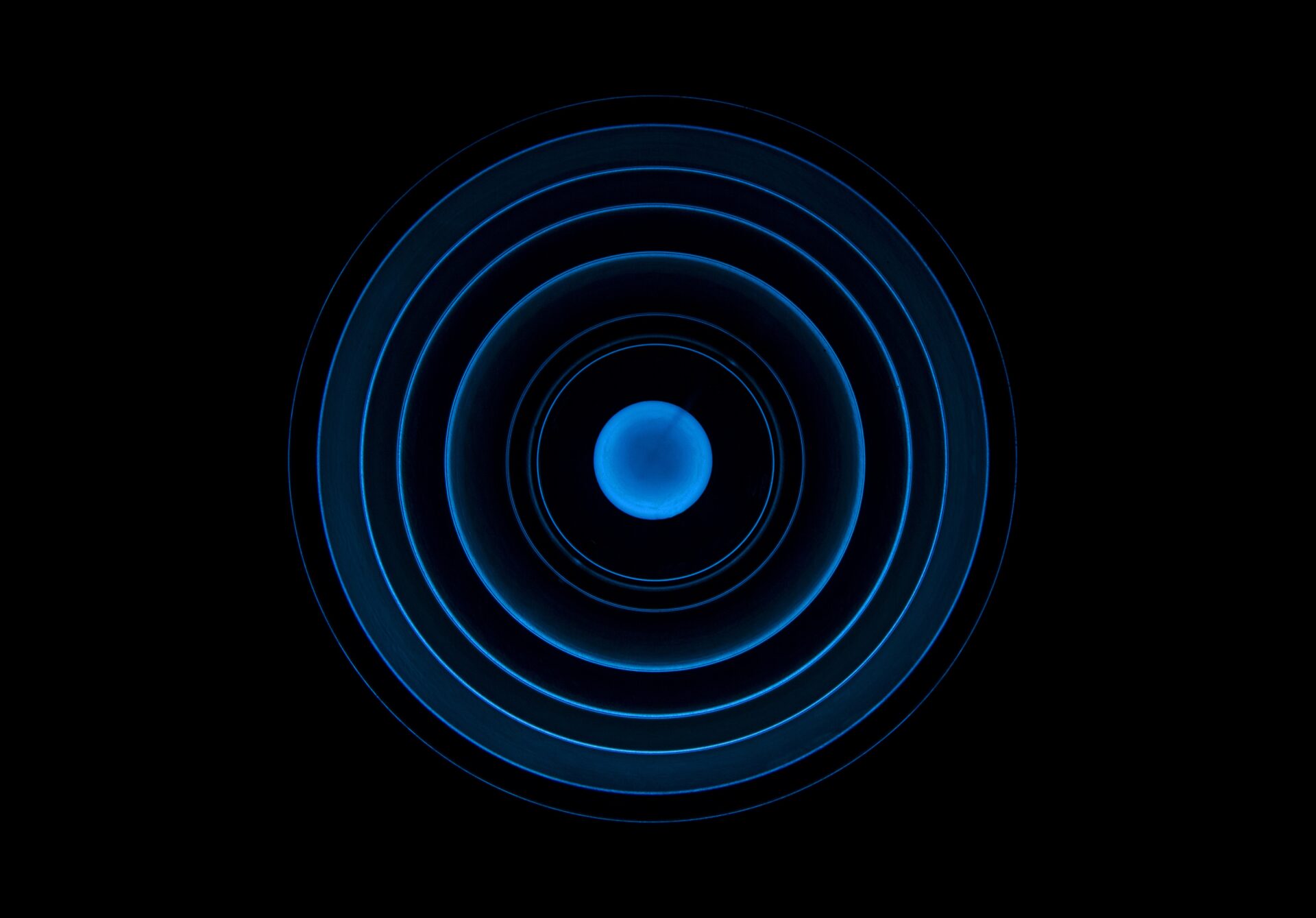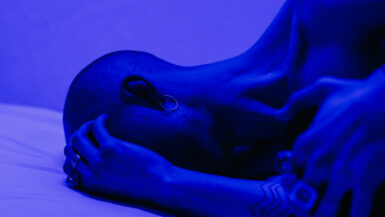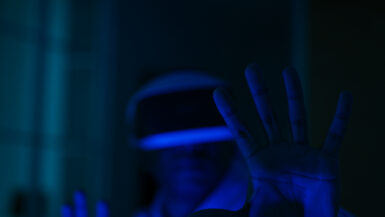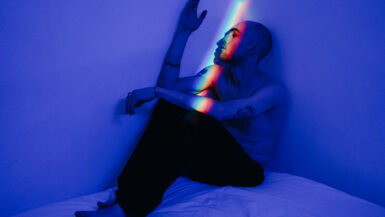In today’s fast-paced, technology-driven society, the importance of a good night’s sleep and its impact on our overall well-being cannot be overstated. One factor that has been increasingly scrutinized in recent years is the influence of blue light on our sleep patterns and productivity levels. In this article, we delve into the science behind blue light, exploring its effects on our sleep and circadian rhythm, and how it ultimately affects our ability to work efficiently. We also provide practical suggestions on creating a blue light-free bedroom, offering valuable insights into how a few simple adjustments can significantly improve your sleep quality and productivity. So, join us as we embark on a journey towards a more restful and efficient lifestyle.
Tips for Creating a Blue Light Free Bedroom
As we’ve established the negative effects of blue light on our sleep patterns and productivity levels, it’s crucial to create an environment that minimizes blue light exposure, particularly in the bedroom. In this section, we provide practical tips and suggestions on how to achieve a blue light free bedroom that promotes restful sleep and enhances overall well-being.
Switch to Warmer Light Sources
One of the most effective ways to reduce blue light exposure in your bedroom is by replacing cool, blue light-emitting bulbs with warmer, red or orange light sources. These warmer tones have a lower color temperature, which helps minimize the impact on our circadian rhythms. Consider using incandescent bulbs, dimmable LED lights, or even candles to create a more sleep-friendly environment.
Invest in Blue Light Blocking Devices
Many electronic devices, such as smartphones, laptops, and televisions, emit significant amounts of blue light. To mitigate these effects, consider purchasing screen protectors or clip-on filters that block blue light emissions for your devices. Additionally, blue light blocking glasses can be worn when using electronic devices before bedtime to further reduce blue light exposure.
Establish an Electronics-Free Zone
Creating a designated space in your bedroom that is free from electronic devices can greatly improve your sleep quality. Consider setting up a charging station outside your bedroom or designate a specific area for electronics that is separate from your sleeping space. This not only reduces blue light exposure but also helps create a mental boundary between work, leisure, and sleep.
Embrace Natural Light During the Day
Exposure to natural light during the day can help regulate our internal body clock and improve sleep quality. Make sure you allow ample sunlight into your bedroom during the day by opening curtains or blinds. This will also help you transition more easily into a blue light free environment in the evening.
Adjust Your Evening Routine
Building a relaxing evening routine can greatly improve your sleep quality and make the transition to a blue light free bedroom more seamless. Incorporate activities such as reading a physical book, meditating, or practicing gentle stretching to help unwind and signal to your body that it’s time to sleep. Additionally, consider learning more about how blue light affects sleep and performance at work to further inform your evening habits and routines.
By implementing these tips and creating a blue light free bedroom, you can significantly improve your sleep quality, boost your productivity, and enhance your overall well-being. Not only will you be more rested and energized, but you’ll also be better equipped to handle the demands of daily life in our increasingly connected world.
Alternatives to Blue Light Emitting Devices
While we have established the importance of creating a blue light free bedroom for better sleep quality and productivity, it is worth exploring alternatives to blue light emitting devices that can be used in other areas of our lives. In this subsection, we delve into various options that can help reduce our overall exposure to blue light while still enjoying the conveniences and benefits of modern technology.
Opt for E-Ink Devices
E-Ink technology is an excellent alternative to traditional LED screens, as it emits minimal amounts of blue light. Devices such as e-readers and certain smartwatches use E-Ink technology to display text and images, making them a better choice for evening use or prolonged screen time. These devices not only help protect your eyes from blue light exposure but also provide a more comfortable and natural reading experience.
Explore Apps with Blue Light Reduction Features
Many apps and software programs now offer built-in blue light reduction features, which can help minimize the impact of blue light on our circadian rhythm. For example, f.lux and Night Shift are popular apps that adjust the color temperature of your screen according to the time of day, reducing blue light emissions in the evening. Make sure to enable these features on your devices and explore other apps that prioritize eye health and sleep quality.
Utilize Voice-Activated Technology
Voice-activated technology, such as smart speakers and virtual assistants, can help minimize blue light exposure by reducing the need to interact with screens. Instead of scrolling through your phone or tablet before bedtime, consider using a voice-controlled device to set alarms, check the weather, or play calming music. Embracing this hands-free approach can help create a more relaxing environment and promote better sleep.
Consider Traditional Forms of Entertainment
Revisiting traditional forms of entertainment, such as reading physical books, playing board games, or engaging in creative hobbies, can significantly reduce blue light exposure and provide a welcome break from screens. These activities not only foster relaxation and mindfulness but also help improve cognitive function and overall well-being.
By exploring these alternatives to blue light emitting devices, we can strike a balance between enjoying the benefits of technology and prioritizing our health and sleep quality. Making conscious choices to reduce blue light exposure will not only lead to better sleep and increased productivity but will also contribute to a more mindful and balanced lifestyle.
Effects of Blue Light Exposure on Sleep Quality
Understanding the impact of blue light exposure on sleep quality is essential for appreciating the benefits of a blue light free bedroom. In this section, we delve into the science behind how blue light affects our sleep, and highlight the specific areas of our sleep patterns that are influenced by this type of light. With this knowledge in hand, you will be better equipped to make informed decisions about your bedroom environment and sleep hygiene.
Disruption of Circadian Rhythms
Blue light has been found to interfere with our body’s internal clock, known as the circadian rhythm. Exposure to blue light in the evening suppresses the production of melatonin, the hormone responsible for regulating sleep and wakefulness. This disruption can make it difficult to fall asleep at night and can lead to an overall decrease in sleep quality.
Increased Sleep Onset Latency
As a result of the disruption to our circadian rhythm, blue light exposure can increase the amount of time it takes to fall asleep, also known as sleep onset latency. When it takes longer to drift off to sleep, the total duration of restful sleep is reduced, leading to feelings of fatigue and grogginess the next day.
Reduced REM Sleep
Blue light exposure has also been linked to a reduction in rapid eye movement (REM) sleep, the stage of sleep associated with dreaming and memory consolidation. A lack of sufficient REM sleep can negatively impact cognitive function, impairing memory, learning, and emotional regulation.
Aggravation of Sleep Disorders
For individuals with existing sleep disorders, such as insomnia or sleep apnea, blue light exposure can further exacerbate symptoms and make it even more challenging to achieve restorative sleep. By eliminating sources of blue light in the bedroom, individuals with sleep disorders may experience some relief from their symptoms and find it easier to establish a regular sleep pattern.
Compromised Immune Function
Poor sleep quality, often resulting from blue light exposure, can have a detrimental effect on our immune system. Chronic sleep deprivation weakens the body’s ability to fight off infections and increases the risk of developing various health issues. By minimizing blue light exposure and improving sleep quality, we can support our immune system and maintain better overall health.
Taking into account the various ways in which blue light exposure can negatively impact sleep quality, it becomes clear that creating a blue light free bedroom is a critical step towards achieving restorative and restful sleep. By making conscious efforts to reduce blue light exposure in our sleeping environment, we not only set the stage for a better night’s sleep but also contribute to improved mental, emotional, and physical well-being.
Understanding Blue Light and Its Sources
Before diving into the benefits of a blue light free bedroom, it is essential to understand the nature of blue light and its sources in our everyday lives. In this section, we will explore what blue light is, where it comes from, and why it has such a significant impact on our sleep and overall well-being.
What is Blue Light?
Blue light is a part of the visible light spectrum, with a wavelength range of approximately 380 to 500 nanometers. It is characterized by its high-energy output and short wavelengths, which contribute to its ability to penetrate deep into the eye and impact our biological processes. While blue light is present in natural sunlight, it is also emitted by various artificial sources, which have become increasingly prevalent in our daily lives.
Sources of Blue Light in Daily Life
While sunlight is the primary source of blue light, there are numerous artificial sources that we encounter every day. These include:
- LED Lights: Many homes and workplaces use energy-efficient LED bulbs, which emit a significant amount of blue light.
- Electronic Devices: Screens of smartphones, tablets, computers, and televisions all produce blue light, which can be especially harmful when used for extended periods or close to bedtime.
- Fluorescent Lights: Similar to LED lights, fluorescent bulbs are also a common source of blue light in both residential and commercial settings.
Given our constant exposure to these sources, it becomes increasingly important to be mindful of blue light and its effects on our sleep and well-being.
The Double-Edged Sword of Blue Light
It is important to note that not all blue light is harmful. In fact, blue light is essential for maintaining our circadian rhythm and promoting alertness during the day. Exposure to blue light in the morning and throughout the day can help regulate our sleep-wake cycle and improve cognitive function. However, the problem arises when we are exposed to blue light during the evening or nighttime, as it can interfere with our natural sleep patterns and hinder the production of melatonin, the hormone responsible for sleep regulation.
Increased Exposure Due to Modern Lifestyles
As our society becomes more reliant on technology, our exposure to blue light has dramatically increased. The widespread use of electronic devices, particularly in the evening and before bedtime, has led to a significant disruption in our natural sleep patterns. This increased exposure to blue light can contribute to sleep disorders, fatigue, and reduced productivity, making it all the more important to understand the benefits of a blue light free bedroom.
Armed with this knowledge of blue light and its sources, we can better appreciate the importance of creating a sleep environment that minimizes blue light exposure. By taking proactive steps to reduce our exposure to blue light, especially in the evening, we can improve our sleep quality, enhance our overall well-being, and reap the benefits of a blue light free bedroom.
Blue Light and Its Impact on Productivity
While we have delved into the effects of blue light on sleep quality, it is also essential to examine how it impacts our productivity during waking hours. In this subsection, we will explore the link between blue light exposure and cognitive performance, and how minimizing exposure to blue light in the bedroom can ultimately lead to enhanced productivity throughout the day.
Alertness and Cognitive Performance
Blue light has a stimulating effect on our brain, increasing alertness and improving cognitive performance during the day. However, this stimulating effect can become detrimental when we are exposed to blue light in the evening or before bedtime, as it can interfere with our ability to wind down and prepare for sleep. As a result, we may experience difficulty falling asleep or staying asleep, leading to insufficient rest and decreased productivity the following day.
Impaired Decision-Making and Problem-Solving
Research has shown that blue light exposure in the evening can negatively impact our decision-making and problem-solving abilities. This can be attributed to the disruption of our circadian rhythm, which can lead to sleep deprivation and consequently, impaired cognitive function. By reducing blue light exposure in the bedroom, we can promote a more restful night’s sleep, allowing us to function at our best during the day and make better decisions in both our personal and professional lives.
Reduced Creativity and Innovation
Another area where blue light exposure can impact productivity is in our ability to think creatively and innovate. A well-rested mind is more likely to be able to generate new ideas and find innovative solutions to problems. By creating a blue light free bedroom, we can give our minds the opportunity to recharge and cultivate the creative thinking that is essential for success in today’s competitive and fast-paced world.
Increased Stress and Burnout
Chronic exposure to blue light, particularly in the evening, can also contribute to increased stress levels and burnout. High levels of stress can negatively impact our ability to focus and accomplish tasks efficiently, ultimately leading to reduced productivity. By minimizing blue light exposure in our sleeping environment and prioritizing restorative sleep, we can better manage stress and maintain a healthy work-life balance.
Improved Collaboration and Interpersonal Skills
Lastly, it is important to recognize that productivity is not just about individual performance, but also about our ability to work effectively with others. A well-rested individual is more likely to be able to communicate effectively, empathize with others, and collaborate successfully. By reducing blue light exposure in the bedroom and prioritizing sleep, we can enhance our interpersonal skills and contribute positively to a productive and harmonious work environment.
Understanding the various ways in which blue light exposure impacts productivity allows us to appreciate the importance of creating a blue light free bedroom. By prioritizing restorative sleep and minimizing exposure to blue light in our sleeping environment, we can optimize our cognitive performance, decision-making abilities, creativity, and interpersonal skills, ultimately leading to a more productive and fulfilling life.





Leave a reply